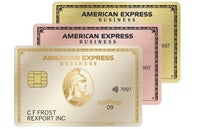Credit cards that offer purchase protection




Key takeaways
- Purchase protection is a special perk that allows you to get reimbursed for something you bought with your credit card in certain situations.
- Not all products are eligible for purchase protection, and most credit card issuers put a limit on how much you can be reimbursed from a single claim.
- The credit cards with the best purchase protection benefits have high reimbursement limits and clearly outline their policies to their cardholders.
There are several reasons to use a credit card for a large purchase. For starters, many of the best credit cards let you earn rewards as a percentage of your spending, and most come with zero liability coverage that protects you from fraud.
Some credit cards also come with added protections and benefits that can help you get reimbursed for eligible products if something goes wrong. This includes purchase protection, which is a unique perk offered through credit cards that can help repair or replace items you bought months after a purchase is made.
If you’re planning on spending a lot of money on furniture, electronics or another large purchase, keep reading to learn more about purchase protection, how this coverage can help you save money and which credit cards have it.
Comparing the best credit cards for purchase protection
| Card name | Best for | Card protection | Annual fee |
|---|---|---|---|
| Chase Freedom Flex®* | Rotating categories | $500 per claim and $50,000 per account up to 120 days from purchase date (90 days for New York residents) | $0 |
| Chase Freedom Unlimited® | Everyday spending | $500 per claim and $50,000 per account up to 120 days from purchase date (90 days for New York residents) | $0 |
| Blue Cash Preferred® Card from American Express | Groceries | $1,000 per claim and $50,000 per account up to 90 days from purchase date | $0 intro annual fee for the first year, then $95. |
| Ink Business Cash® Credit Card | Small businesses | $10,000 per claim and $50,000 per account up to 120 days from purchase date | $0 |
| American Express® Business Gold Card | Business executives | $1,000 per claim and $50,000 per account up to 90 days from purchase date | $375 |
Top credit cards with purchase protection
There are plenty of rewards credit cards with purchase protection that can help you recoup your losses when damage or theft occurs. Here are some of the best options available today:

Chase Freedom Flex®
-
The Chase Freedom Flex®* offers lucrative rewards in an array of popular spending categories and decent purchase protection. You can claim protection on new purchases for 120 days against damage or theft up to $500 per claim and $50,000 per account.
Also, you earn 5 percent back after activation on up to $1,500 spent in rotating quarterly categories and on travel booked through Chase Travel℠.

Chase Freedom Unlimited®
-
The Chase Freedom Unlimited® offers the appeal of a boosted cash back rate for general purchases plus bonus categories. You won’t pay an annual fee, yet you’ll earn the basic rate of 1.5 percent back on everyday spending, as well as 5 percent back on travel booked through Chase Travel℠ and 3 percent back on dining and drugstore purchases.

Blue Cash Preferred® Card from American Express
-
The Blue Cash Preferred® Card offers one of the best rewards rates on groceries, streaming services and U.S. gas stations among all rewards credit cards on the market today.
This card also covers new purchases for 90 days against damage or theft up to $1,000 per claim and $50,000 per account.

Ink Business Cash® Credit Card
-
If you’re looking for a business credit card that offers purchase protection on business-related purchases, it’s hard to beat the Ink Business Cash® Credit Card. Coverage worth up to $10,000 per claim is terrific since you may need coverage for pricey workplace equipment or other business supplies.

American Express® Business Gold Card
-
The American Express® Business Gold Card has the same purchase protection as the Blue Cash Preferred Card but with a higher price tag — and for good reason. On top of earning 4X points on your top two eligible categories where your business spends the most each month (such as in transit, advertising in select media like online, TV, radio and more), there’s also valuable business and travel credits included. It also has cellphone protection and extended warranty.
How to use purchase protection
Credit cards that offer purchase protection only extend this coverage when you use your credit card to pay for the item you want coverage for. However, you may also be able to use this coverage if you paid for an item with rewards earned with a credit card that offers purchase protection. Here is what Chase says about qualifying for coverage in their fine print:
Purchase protection “protects an item against theft, damage or Involuntary and Accidental Parting when You charge all or a portion of the cost of the eligible item to Your Covered Card and/or use redeemable Rewards.”
Once you pay for an item with your credit card, rewards points or a combination of the two, the item is automatically eligible for coverage, provided it’s not listed as an excluded item in your card’s benefits guide. If your item is damaged or stolen while your purchase protection coverage is still in force, you are typically instructed to file a claim by calling a claims hotline or filling out a claims form online.
Common purchase protection exclusions
If you plan to use your credit card for purchase protection, you should read through the fine print of your coverage to see which items do and do not qualify.
- Used or pre-owned items
- Perishables
- Items left in plain sight before they were stolen
- Antiques and other collectibles
- Computer software
- Items purchased commercially for resale
- Boats and other motorized vehicles
Items confiscated by the government may also be excluded, as well as losses due to acts of war, items with normal wear and tear or items that “mysteriously” disappear.
The bottom line
If you plan on making a large purchase and want some peace of mind in case something goes wrong, signing up for one of the best purchase protection credit cards makes a lot of sense. Not only can you earn rewards for shopping, but you may get reimbursed or see your item replaced if it’s damaged or stolen while your coverage is in force.
But the best part about credit card purchase protection is that it’s offered free as a cardholder perk. Since you can get coverage without paying for it, you might as well take advantage.
Frequently asked questions about credit cards and purchase protection
*Information about the Chase Freedom Flex® has been collected independently by Bankrate. Card details have not been reviewed or approved by the issuer.
Why we ask for feedback Your feedback helps us improve our content and services. It takes less than a minute to complete.
Your responses are anonymous and will only be used for improving our website.







